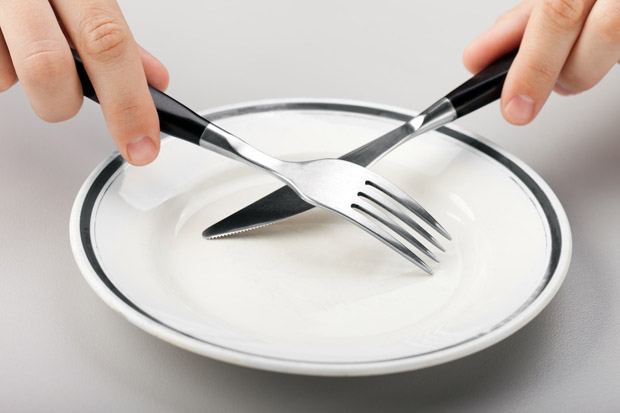
Intermittent Fasting May Be Key for Successful Weight Management
While there are many potential factors contributing to unsuccessful weight loss, if you’re struggling with excess weight then when you eat may be just as important as what you eat.In over 30 years of clinical practice, intermittent fasting is one of the most effective ways to shed excess weight I have ever seen.
October 16, 2015 | Source: Mercola | by Dr. Mercola
While there are many potential factors1 contributing to unsuccessful weight loss, if you’re struggling with excess weight then when you eat may be just as important as what you eat.
In over 30 years of clinical practice, intermittent fasting is one of the most effective ways to shed excess weight I have ever seen. This is for two reasons:
• It helps improve your insulin and leptin sensitivity
• It “resets” your body to more effectively burn fat for fuel
Eating too close to bedtime is another meal-timing factor that can have serious health consequences.
There’s compelling evidence showing that when you supply fuel to your mitochondria at a time when they don’t need it, they leak a large number of electrons that liberate reactive oxygen species as free radicals.
These free radicals damage your mitochondrial and eventually nuclear DNA. There’s also evidence indicating that cancer cells uniformly have damaged mitochondria, so the last thing you want to do is eat right before bedtime.
But personally I strive for six hours of fasting before bedtime, but at bare minimum, avoid eating at least three hours before going to bed.
If you have serious adrenal challenges then you would likely need to resolve them before implementing intermittent fasting.
Also if your goal is to have large muscles, intermittent fasting would likely not be your best strategy. But personally I believe that working to eliminate your risk of cancer for the goal of living much longer is a far better choice for most of us.
Research Shows Most Americans Eat Four to 15 Times a Day
Research reveals that a vast majority of Americans eat all day long. Most also consume a majority of their daily calories late in the evening, and this type of eating pattern is a recipe for weight gain and metabolic dysfunction.
As reported by LA Times:2
“… Americans’ 24/7 culture of work, entertainment, and digital connectivity now also extends to our dietary consumption patterns, new research3 finds.
Americans’ erratic, round-the-clock eating patterns, suggests the new study, have probably contributed to an epidemic of obesity and Type 2 diabetes.
But they can be changed, and the restoration of a longer nighttime ‘fast’ shows promise as a means to lower weight and better health…”
The study4 revealed that most participants spread their eating and drinking over the course of 15 hours each day. About 25 percent of their daily calories were consumed before noon, and more than 35 percent after 6 pm.
Other trends revealed by carefully tracking the timing and content of people’s food and beverage intake for three weeks included the following:
• The 10 percent of participants who ate and drank the fewest number of times each day still averaged 4.2 consumption-events per day
• The 10 percent who ate most frequently averaged 15.5 consumption-events daily
• Less than 10 percent of participants went without food for 12 hours or longer
• The majority fasted less than 9 hours a day
• An average of 12 percent of the total calories participants ate each day were consumed after 9 pm
